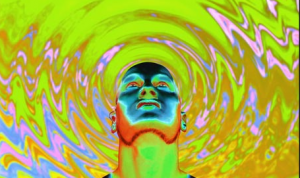 For decades, now, research into responsible medical and psychological uses of psychedelic drugs has been forbidden by law. Recently, however, some research into psilocybin (magic mushrooms), MDNA (ecstasy) and other chemicals has begun in university research settings. It’s become allowable by a slight shift of laws towards more sanity: allowing research that can aid healing of emotional traumas and create positive development in one’s attitudes and behavior. This is a welcomed trend. Some recent studies are described in an article by Don Lattin, “The Second Coming of Psychedelics,” in Spirituality & Health. He writes, “What’s new is that these powerful mind-altering substances are coming out of the drug counterculture and back into the mainstream laboratories of some of the world’s leading universities and medical centers. Research projects and pilot studies at Johns Hopkins, Harvard, Purdue University, and the University of California, Los Angeles, are probing their mind-altering mysteries and healing powers. Psychedelic drugs like psilocybin and Ecstasy are still illegal for street use and cannot be legally prescribed by doctors, but university administrators, government regulatory agencies, and private donors are once again giving the stamp of approval—and the money needed—for research into beneficial uses for this “sacred medicine.” For the full article, click here.
For decades, now, research into responsible medical and psychological uses of psychedelic drugs has been forbidden by law. Recently, however, some research into psilocybin (magic mushrooms), MDNA (ecstasy) and other chemicals has begun in university research settings. It’s become allowable by a slight shift of laws towards more sanity: allowing research that can aid healing of emotional traumas and create positive development in one’s attitudes and behavior. This is a welcomed trend. Some recent studies are described in an article by Don Lattin, “The Second Coming of Psychedelics,” in Spirituality & Health. He writes, “What’s new is that these powerful mind-altering substances are coming out of the drug counterculture and back into the mainstream laboratories of some of the world’s leading universities and medical centers. Research projects and pilot studies at Johns Hopkins, Harvard, Purdue University, and the University of California, Los Angeles, are probing their mind-altering mysteries and healing powers. Psychedelic drugs like psilocybin and Ecstasy are still illegal for street use and cannot be legally prescribed by doctors, but university administrators, government regulatory agencies, and private donors are once again giving the stamp of approval—and the money needed—for research into beneficial uses for this “sacred medicine.” For the full article, click here.
Similarly, a recent article by April M. Short in AlterNet describes research reported at the conference of the Multidisciplinary Association for Psychedelic Studies (MAPS). She reports that “Today, in addition to other psychedelics and cannabis, MAPS continues to study the healing potential of MDMA-assisted psychotherapy on psychological and emotional damage caused by sexual assault, war, violent crime, and other traumas.” And, “The psychedelic science topics under study ranged from the potential uses of various psychedelic Schedule I substances to treat afflictions like heroin and smoking addiction, to the treatment of chronic illness and pain therapy at the end of life, to the moral and spiritual impacts of psychedelics on humans and society. For example, MAPS met at the Pentagon with the assistant secretary of the Navy and the Navy surgeon general to discuss their proposal to work with active duty soldiers in the treatment of post-traumatic stress disorder (PTSD). For Short’s complete article, click here.
Then, an article in the Chronicle of Higher Education by Zoe Corbyn, “Psychedelic Academe: Research into mind-altering drugs is back,” describes the six-day international Psychedelic Science conference that drew a large number of academic researchers (as well as those who have more personal interest and experience in the use of psychedelics). She writes, “Researchers in psychiatry and psychology are here presenting their latest findings on the use of psychedelics to help treat anxiety disorders and addictions for which conventional treatments don’t always work.” She describes in detail the work of Charles Grob, psychiatry professor at UCLA’s Medical School. He’s a leading researcher in this field, especially in studies using psilocybin, the active ingredient in magic mushrooms, to treat severe anxiety in advanced-stage cancer patients. For the full article, click here.

After 50 years of prohibition we are seeing a dramatic shift in favour of drug decriminalisation and unlocking the therapeutic potential of psychedelics